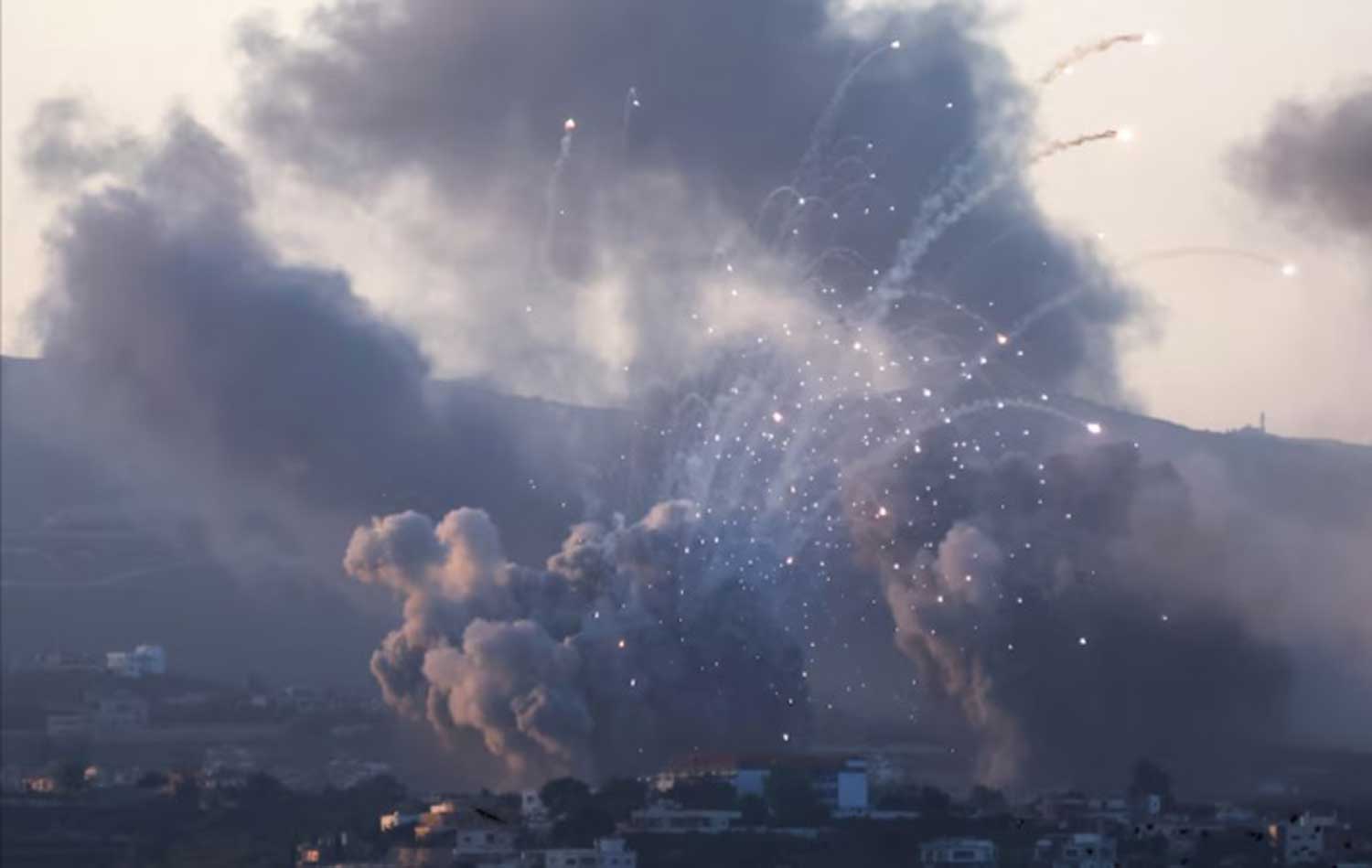Israel conducted airstrikes on numerous Hezbollah positions on Monday, resulting in at least 180 fatalities, according to Lebanese health officials. This marks the deadliest day in Lebanon amid nearly a year of ongoing conflict. Following intense cross-border exchanges, Israel urged residents to evacuate areas identified as sites for Hezbollah’s weapon storage.
With nearly a year of warfare against Hamas in Gaza, Israel is now redirecting its attention to its northern border, where Hezbollah, supported by Iran, has been launching rockets into Israel in solidarity with Hamas.
Israeli Defence Minister Yoav Gallant stated in a video released by his office that operations will persist until the safety of northern residents is ensured, indicating a protracted conflict ahead, as Hezbollah has pledged to continue fighting until a ceasefire is established in Gaza.
“These are times when the Israeli public must demonstrate patience,” he remarked, following military actions targeting Hezbollah in southern Lebanon, the eastern Bekaa Valley, and northern regions near Syria.
Lebanon’s health ministry reported that at least 180 individuals, including women, children, and medical personnel, have lost their lives, with over 400 others injured due to Israeli airstrikes on Monday. Israeli army spokesperson Avichay Adraee announced on X that more than 300 Hezbollah positions had been targeted, following prior warnings of imminent airstrikes on residences in Lebanon where “Hezbollah concealed weapons.” In retaliation, Hezbollah confirmed it had fired rockets at Israeli military installations. Further attacks are anticipated, with Israeli aircraft preparing to strike Hezbollah’s strategic weaponry located in homes within Lebanon’s Bekaa Valley. The Israeli military spokesperson urged civilians to evacuate immediately.
Rear Admiral Daniel Hagari stated in a televised address, “The current scenes from southern Lebanon show secondary explosions of Hezbollah munitions detonating within residences. Every house we target contains weapons—rockets, missiles, and unmanned aerial vehicles intended to harm Israeli civilians.” The airstrikes have escalated pressure on Hezbollah, which recently experienced an unprecedented attack, as described by its Secretary General Hassan Nasrallah, when thousands of pagers and walkie-talkies used by its members malfunctioned. This incident has been largely attributed to Israel, although the country has neither confirmed nor denied its involvement. Additionally, an Israeli airstrike on Friday in Beirut’s southern suburb aimed at high-ranking Hezbollah officials resulted in the deaths of 45 individuals, according to the Lebanese health ministry.
Hezbollah reported that 16 of its members were among those killed, including prominent leader Ibrahim Aqil and another commander, Ahmed Wahbi. According to the Israeli ambulance service, one individual sustained minor injuries from shrapnel during the recent rocket attacks on northern Israel.
Imad Kreidieh, the head of the Lebanese telecommunications company Ogero, informed Reuters on Monday that over 80,000 automated evacuation calls were detected on the network, although not all were answered. He characterized these calls as “psychological warfare aimed at creating chaos and disorder.” Evacuation alerts reached as far as Beirut, the capital of Lebanon.
Lebanon’s information minister, Ziad Makary, stated that his ministry received an evacuation order for their building but clarified that they would not comply, labeling it as part of a psychological campaign. In the Sassine district of eastern Beirut, state employee Joseph Ghafary expressed concern that Hezbollah might retaliate against Israel’s increased attacks, potentially leading to a full-scale war. He remarked, “If Hezbollah undertakes a significant operation, Israel will respond with even greater force. We cannot endure this situation.”
Mohammed Sibai, a shopkeeper in the Hamra neighborhood of Beirut, described the current escalation as “the beginning of the war,” adding, “If they desire war, what can we do? It has been forced upon us, and we are powerless to change it.”
When questioned by reporters about the possibility of an Israeli ground invasion of Lebanon, Hagari stated earlier, “We will take all necessary actions” to ensure the safe return of evacuated residents in northern Israel, which is a top priority for the Israeli government. During a media briefing, Hagari also presented aerial footage purportedly showing Hezbollah operatives attempting to launch cruise missiles from a civilian residence in Lebanon, followed by an Israeli strike just before the launch.
Discover more from Defence Talks | Defense News Hub, Military Updates, Security Insights
Subscribe to get the latest posts sent to your email.





